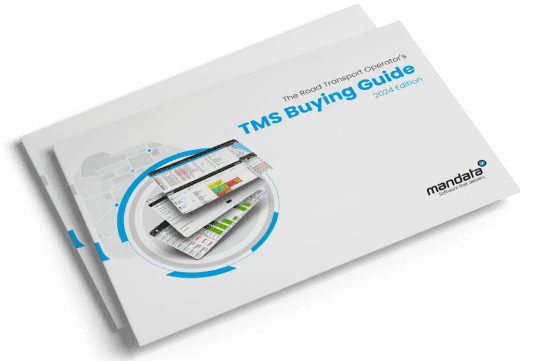How Transport Management Systems Improve Efficiency in Haulage
In the fast-paced world of transport, operational efficiency is crucial for success. Transport Management Software (TMS) have emerged as powerful tools that enable businesses to streamline their operations and enhance productivity. In this article, we will explore how a TMS improves operational efficiency in transport and revolutionises the way goods are transported and delivered successfully to your customers.
What is a Transport Management System (TMS)?
A Transport Management System (TMS) is a software solution designed to help optimise and automate transport operations. It acts as a centralised platform that helps businesses efficiently manage their transport processes, from job creation to route planning, driver allocation, real-time job updates and job invoicing. A TMS empowers companies to make data-driven decisions, improve visibility, and enhance overall efficiency within the transport operations.
Read more: What is a transport management system?
Streamlining Job Creation with a TMS
Job creation is a critical aspect of transport, get it wrong and the whole job process is at serious risk. A TMS system simplifies and helps automate this process, quickly and easily. A TMS allows businesses to efficiently capture, organise, and process orders, reducing manual errors and improving overall efficiency. Using previous jobs, a TMS can replicate customer information to reduce manual data entry and save your team so much time away from administrative tasks, giving faster and more efficient productivity.
KCL cut down on admin giving efficiency a boost with Go
“Thanks to Mandata Go, we’ve halved the time we used to spend on invoicing, and having all the information on one screen has made planning so much easier. We’ve drastically improved our customer experience now that our customers can log in to the customer portal to access their ePODs immediately. And our back-office staff no longer have to wait for paper proof of delivery notes to attach them to invoices to send to customers.”
Andrew Dunn, Director at KCL Logistics
Efficient Route Planning and Execution
One of the key benefits of a TMS is its ability to assist with route planning and job execution. A TMS software takes into account various factors such as distance, traffic conditions, low bridges and delivery time windows to create the most efficient routes. By finding the best routes, a TMS helps reduce mileage, fuel consumption, and transport costs. A TMS can directly help your business to reduce empty mileage, and help your business save costs by running a lot more efficiently. Real-time tracking and integration with GPS and telematics systems allow businesses to proactively address any disruptions or delays, ensuring on-time deliveries and customer satisfaction.
Read more: What is a Route Planning Software?
Read more: How Transport Management System Simplifies Route Planning in Road Haulage
John Bourne increase speed and efficiency with Mandata TMS
“Now, Mandata has reduced by many hours the workload in sorting drivers’ day sheets and paper PODs. The whole process is faster and more efficient.”
John Bourne & Co
Enhancing Driver Selection and Communication
Choosing the right driver and vehicle is essential for efficient transport operations. TMS enables businesses to evaluate drivers based on predefined criteria such as cost, performance, and service level agreements. By assisting with the driver selection process, A TMS helps companies make informed decisions and decide which driver and vehicle is best suited to that particular job. Additionally, a TMS facilitates quick and easy communication with drivers through their smart phones or tablet, to help automate documentation delivery, reducing administrative burdens and improving overall efficiency. Drivers can simultaneously update you on their job progress using job status updates, giving you a true real-time update as to the progress of the delivery.
Improving Job invoicing
Freight invoicing are critical functions in transport, and a TMS simplifies these processes. With a TMS, businesses can automate freight auditing, ensuring accurate billing and reducing the chances of overpayment. TMS integrates with financial systems such as Sage, Quickbooks and Xero to streamline invoicing and payment processes, eliminating manual data entry and reducing errors. Improved accuracy in invoicing leads to better financial visibility and enables businesses to make informed decisions based on accurate cost analysis.
Read more: The Benefits of Electronic Proof of Delivery (ePoD) in Road Haulage
Transport Management Systems (TMS) play a pivotal role in improving operational efficiency in transport. By streamlining order management, enhancing route planning and execution, enhancing driver selection and communication, and improving freight invoicing, a TMS works with businesses to achieve greater productivity, cost savings, and most importantly customer satisfaction. As the transport industry continues to evolve, adopting a TMS has become essential for companies striving to stay competitive and efficient in the fast-paced global marketplace. Embracing a TMS is the key to transforming transport operations and achieving sustainable success.
Learn more: 9 Benefits of a Transport Management System for Haulage Businesses

